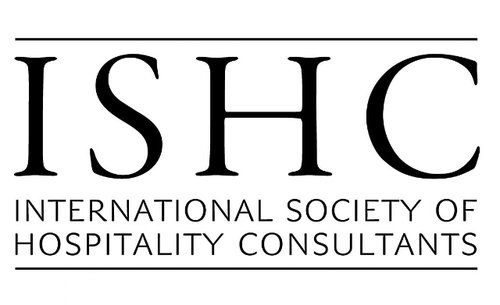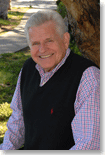Never Go to Bat Without a Plan: New Generation of Hospitality Sales Professionals Lesson #11 | By David M. Brudney, ISHC
April ushers in the start of a brand new Major League Baseball season and with it, the end of one of diehard baseball fans’ storied pastimes: annual spring training.
Serious, loyal, need-to-get-a-life fans flock to MLB’s training camps from Florida to Arizona for the annual winter migration just for the love of the game, and to watch and interact with favorite ballplayers in a more intimate, laid back environment.
During the very first week of spring training - - when only pitchers and catchers participate - - teams work on very basic fundamentals, e.g., pitchers taking bunting practice, fielding bunts, throwing to bases, covering first and pick off plays.
And there, toiling under a hot sun, running each drill methodically, you’ll find 15-year vets with multi-million dollar contracts, working side-by-side with rookies, just hoping to make the big league roster. No matter the status, everyone repeats the same basic fundamental drill over and over and over - - until they get it down perfect.
There isn’t time for practicing those fundaments during the regular season so baseball gets it done during spring training. Fortunately, in the 24/7 world of hotels, we do have the time to work on fundamentals every day, at the start of every new shift; from the guest check-in process, guest interaction, greetings, eye contact, recognition, taking room service orders, BEOs (banquet event orders) to housekeeping guest room check lists.
Ours is a business consumed with the “smallest details,” one that demands mastering the fundamentals no matter what department - - front desk, housekeeping, catering, sales, etc., followed by repetition and continuous training. Selling, too, involves details and mastering fundamentals.
There is another element of spring training that has strong relevance for anyone in hotel sales today - - sales managers and DOSMs alike. It’s the coaching and instructing for all hitters on how best to prepare for each at bat, each “selling” opportunity.
Baseball batting instructors work with players on their hitting fundamentals throughout the spring and throughout the season as well. In addition to working with players on mechanics and watching hours of video after practice, instructors teach hitters about the importance of having a plan for every at bat during a game.
Hitters are instructed to step to the plate with a clear understanding of what the situation dictates, what they need to accomplish based on the score, the inning, number of outs and base runners. What kind of a pitch to expect, where in the strike zone, and how has that pitcher “pitched” to the batter in previous encounters?
A Hitter’s goal might range from hitting the ball on the ground to the right side of the infield so that the base runner on second may advance to third base to putting the ball into the air, deep enough so that a base runner on third can tag up and score after the catch. Baseball considers either one or both “productive outs.”
Hotel sales pros - - veterans and rookies alike - - need to apply that very same thinking process before taking an incoming phone call from a meeting planner: make sure to have a plan before engaging the prospect in dialogue. This is especially critical when the sales pro is working in the dark, when the prospect has yet to be professionally qualified.
Successful sales pros never engage a caller prospect on the phone or in person without having a plan and typically plans start with asking very good questions:
Who? Prospect’s name, location, contact info, name of group. Who will be attending? What are the attendee’s expectations?
What? What is the prospect looking for? What does the prospect know already, if anything, about my hotel?
Why? Why did the prospect call (my hotel)? Why are they holding this event? How did the prospect find my hotel?
When? When does the group expect to meet? Available dates?
Where? Where has this particular group met before? Why (have they met there)?
How? How long will the process of booking the event take? Is there a decision date?
Who? Who is the decision maker; the decision influencer?
What? What other hotels, destinations are being considered? And for what reasons?
And let’s keep in mind that incoming calls from qualified prospects should be looked upon as a real bonus, similar to hitters in baseball looking at a “room service fastball.”
Get a name and number immediately. I’m amazed at how many sales pros can get deep into a prospect’s incoming call without having confirmed the prospect’s contact info. If not delivered by a receptionist and/or sales assistant, the sales pro must get this info immediately - - if for no other reason than a sudden disconnect. 1) Location, full contact info and 2) name of group
Rooms, facilities, F&B required. Armed with the basic contact info and name of group, the sales pro should be able to conduct a quick search of the sales database or group history on their p.c. screen while still engaging in conversation. There may be little or no history and the prospect may have no idea of the subject hotel’s size or facilities. Ask.
Preferred dates, flexible dates. The very best sales pros are the ones who keep “opportunity” or “hard to sell” dates top of mind and present that information as early on in the dialogue as possible. Those that don’t, lose a very big negotiating tool later on when the subject of group room rates takes place.
1st time event or history? If the group does not appear in the hotel’s database, the prospect must be asked before the dialogue ends. Groups meeting first time or groups with no history raise concerns with hotels as to ability to pay or to establish credit.
What will be the two or three deciding factors? Another important piece of information the sales pro can’t learn soon enough - - one that is rarely “volunteered” by the prospect, one that simply must be asked. Here is an opportunity for the sales pro to begin to understand what it might take in order to close the business.
Be prepared for some atypical answers. Today’s meeting planner may not place the same importance as in the past on room rates, meeting facilities or comp rooms. Look for some new metrics used by planners: R.O.O., return on objectives. R.O.C., return on content. R.O.E., return on experience. R.O.R., return on relationships. R.O.I., return on investment (prospect focused on total value received).
Decision dates, decision maker or influencer. I continue to be alarmed at how infrequently these two pivotal questions are not asked. If the sales pro has been unsuccessful in closing at this initial contact, the answers to those two questions should dictate the action plan and timing necessary to book the business.
Younger, less experienced sales pros might benefit from keeping these tips easily accessible - - as a Word document, a pasted sign near the phone or a hard copy encased in a clear plastic folder at the desk. If not, just remember to make effective use of the 5 Ws and the 1 H above (Who, What, Why, Where, When and How?).
You can never practice these fundamentals enough. And don’t forget your ABCs: always be closing!
Good hunting!
To access all previous ten “Lessons” in this series visit www.DavidBrudney.com
 International Society of Hospitality Consultants (ISHC) is a professional society with 190 members in 21 countries. Membership is by invitation only and members are leaders in the industry in their respective areas of expertise. With over fifty areas of specialty expertise represented in the society and member and experience working in over 65 countries, ISHC represents a one of kind collection of experience and expertise worldwide. For additional information on ISHC please visit the ISHC web site at www.ishc.com or contact Lori Raleigh, Executive Director, ISHC, at lraleighishc@aol.com.
International Society of Hospitality Consultants (ISHC) is a professional society with 190 members in 21 countries. Membership is by invitation only and members are leaders in the industry in their respective areas of expertise. With over fifty areas of specialty expertise represented in the society and member and experience working in over 65 countries, ISHC represents a one of kind collection of experience and expertise worldwide. For additional information on ISHC please visit the ISHC web site at www.ishc.com or contact Lori Raleigh, Executive Director, ISHC, at lraleighishc@aol.com.David M. Brudney, ISHC, Principal
Phone: 760-476-0830
Email: davidbrudney@me.com
David Brudney & Associates
www.DavidBrudney.com
2938A Luciernaga Street
USA - Carlsbad, CA 92009
Phone: 760-994-9266
Email: david@davidbrudney.com
OBITUARY: Death of THE Salesman
Remembering Peter A. Smith | By David Brudney
Are Hotels Coveting only Half of the Millennial Market? Part Two | By David M. Brudney

